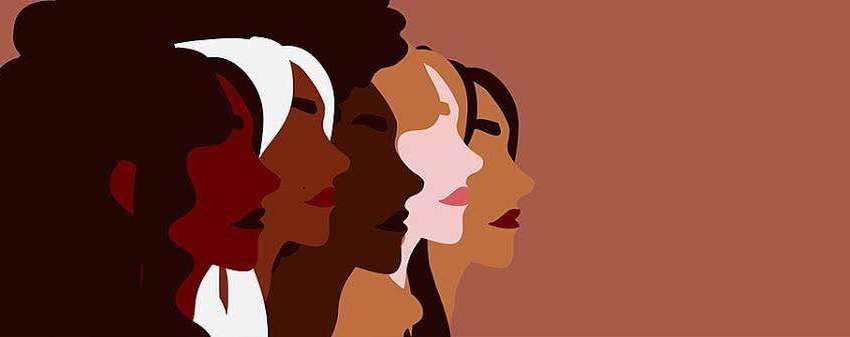Share This Article
As we commemorate Reconciliation Week, Alex Malouf analyses current reconciliatory failures and the further issues we need to address.
There’s not a lot you usually remember about Primary School. The odd disco here and there, excursions to Canberra, painting classes and the vast array of other menial goings on that defined a great bulk of our early childhoods. There are, however, occasionally vivid spots of clarity in between the slew of other, obviously more forgettable moments. In these, details are sharper and faces more defined, you can recall what led up to your being there and what followed immediately after. Perhaps it’s reflective of the reverence those around us are placing on the moment, that we should be capable of bringing that memory to light a decade after with no grasp of its significance at the time.
I can remember one stuffy, January morning, my dad quietly woke me up early and dragged me into the living room to watch, what was to me, a man in a suit give a speech. The significance of this event, which I would later recognise as the inauguration of then President Barack Obama, while historic to dad and almost all those who watched it, was completely and utterly lost on me. I didn’t get it. The guy was the President now, so what? They’d had one beforehand, hadn’t they? What’s so special about this guy?
At the very start of my first year of Primary School, on a date I now know to be February 13, 2008, our teachers stood us up and told us we had a very special assembly on that morning. The entire school was marched to the main hall, Kindergarten to Year 12 seated row upon row and cramped into the same space. We wired into the same broadcast emanating from Canberra that most of the nation did. A man with grey hair, who I figured I’d seen on TV somewhere before, stood up before a room with other grey-haired men in it, and gave a speech. I can’t remember the specific words, nor did I even know what it was about till we got back to class, but the applause was phenomenal. Some teachers were crying, some older students were hugging each-other, and my home class teacher laid the situation bare for us once we were back at class.
We’d just watched the Apology to Australia’s Indigenous People’s, read by then PM Kevin Rudd before the entire country. An unprecedented step in national reconciliation, a concrete acknowledgement of the wrongs of governments passed, a decrying of the old policies and a vision of the future. A chance to heal, to reflect on past mistakes and to make something new. Again, I didn’t really get it.
For my generation, those babies born after the new millennium, these events weren’t meant to be abnormal. We grew up in a world where the issues of the 20th century were supposedly confined to it, a matter which was reflected in our education. The world was a big place, and no race, religion, creed or country comprised the centre of it. No one was inherently better or worse than someone else by virtue of their birth. People deserved respect on account of their being people, end of story. What did it matter that a Black man had won the US Presidency? Anyone could be President, so it was bound to happen. What’s the significance of this national apology? We knew that segregation was terrible, it hardly even bears mentioning, it was obvious to us. Of course we’re sorry, who wouldn’t be?
I am the son of a Lebanese father and White mother. I have dark features, and my younger has brother blonde hair and blue eyes. My best friend was White, and our friend group was equally Asian, Hispanic, Muslim and more. This wasn’t a display of personal virtue nor was it a political statement, this is just what we did. There was nothing abnormal or special about it. The significance of the sorry speech was lost on us because of the successes which predated it. We were the first truly colour-blind generation.
It was assumed then, that in light of the seeming willingness from politicians, the enthusiasm of our parents and our generation’s endorsement through ambivalence, that change was imminent. The momentum was there, an entire nation electrified towards the goal of reconciliation. The bills were signed, the organisations formed, and proposals drawn up. The Council of Australian Governments’ Closing the Gap (CTG) strategy was devised to be a policy which would shine the way. At its centre, the goal of total life expectancy and health equality by 2030 between First Nations and non-Indigenous peoples. Life expectancy, so that Indigenous people would stop dying more than a decade earlier than the rest of Australia, would surely be a good place to start. This basic, first step would be the launching point from where Australia could truly become a united country.
Every year, the Closing the Gap initiative submits an update on its progress. In 2018, it submitted its special, 10-year review, where it critically examined the figures pertaining to its successes with addressing its mission objectives. Shockingly, the report not only noted that it seriously doubted it would reach its 2030 goals, but that in time elapsed, the life expectancy gap had actually worsened.
Now condemned to a “seemingly endless cycle of failure” by Indigenous elders, Closing the Gap is almost symbolic of Australian efforts thus far at reconciliation. Bogged down in bureaucracy, mismanaged, top-led and inefficient, the program has achieved not one of its stated objectives, and with a price tag of half a billion dollars, is now considered a significant money sink. Of the 12 reports ever released by CTG, not one has reached more than 3 of their 12 stated targets. While the Morrison administration promises meetings with elders to create a new, community focused program through reform with the same objectives, many are doubtful of what successes it will achieve.
The passivity and scepticism of the Indigenous community, and more recently Australians at large, surrounding the capacity of the government to enact reconciliatory policies is one of grave concern for younger generations. As each new approach returns dud results and further failure, a pattern is set. A continual loop of half-hearted optimism and resigned apathy. The subconscious culture of defeatism now pervades our attempts at reconciliation more than a decade on from Rudd’s speech, and for the successes of the first colour-blind generation, this spells disaster.
Today, my friends are “the White one” and “the Dark one”, the “Half-Asian” and more. Our colour-blindness is evaporating as we interpret the world around us as our predecessors have formed it. The once unshakable solidarity which defined our early youths has been supplanted by the same characterisations which permeate modern society. “It makes sense Tim’s staying back to study, he’s Asian you know what they’re like”. “Yeah we’ll say sorry, but a lot of good that’ll do hey”.
The failures of previous governments and the reinforcement of the inept status quo has begun to frame our thinking. The world is increasingly contextualised for us as a stagnant one, where change is next to impossible and the challenges of prior generations remain unanswered. The unspoken Australian cynicism which permeates our efforts of national healing has begun to seep into our own worldview, as year after year efforts at reform and renewal are met with defeat. Should these failures persist, the mentality of hopelessness, which has since turned Closing the Gap into an oxymoronic phrase, will gradually smother what chances there are of this generation bringing a fresh energy to the challenge of reconciliation.
At dinner parties and whatnot, I hear older Australians reflect with hope on younger people having the capacity to affect change in Indigenous communities that wasn’t possible in previous generations. Certainly, we nominally support aesthetic measures such as a changing the date, greater education surrounding Indigenous affairs and efforts at reconciliation, and this is reflected in any poll taken with a youth focus. We have the capacity to bring about change for sure. However, we live in a world shaped by the perceptions and subconscious assumptions of those older Australians, one where policy will fail year after year and the task of mending our national identity grows more and more farcical. In this context, between two competing worldviews, that of the optimistic colour-blindness of our generation rooted in our education and the other of cynical complacency rooted in reality, something has to give.
We were the generation raised on the colour-blind myths taught to us in school. We watched as our country apologised for the crimes of the Stolen Generations in silence and accepted the need for reconciliation as common sense. None of this occurred to us to be outlandish, none of it seemed unreasonable. Our generation must be diligent so as to not fall into the same traps of defeatism and throwing money at the problem which define the modern Closing the Gap strategies. Our willingness to make change is there for certain, but if we stay the same course as those who’ve come before us in mending our country, then our responses come the 26th of May will have the same degree of pessimism and evasiveness: “Of course we’re sorry, who wouldn’t be? But there’s nothing we can really do about it, is there?”. Is this what we want?
This piece appeared as part of Reconciliation Week.
Image: Pexels




